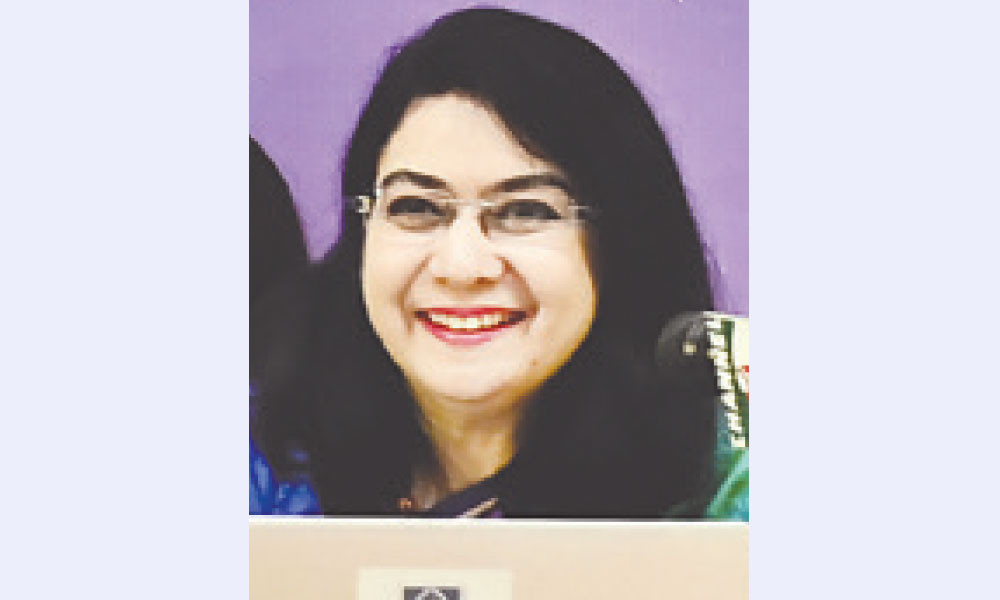Plight of general public and businesses overlooked in proposed budget: CPD
Daily Sun Report, Dhaka
Published: 04 Jun 2025

The Centre for Policy Dialogue (CPD), a leading private research organisation, has criticised the proposed national budget for failing to address the ongoing economic crisis in Bangladesh. CPD also claims that the struggles of both the general public and business community have not been taken into consideration. These observations were made by CPD’s Executive Director Dr Fahmida Khatun during a post-budget press briefing held yesterday.
Dr Khatun, who delivered the keynote address at the event, acknowledged some positive elements in the proposed budget but asserted that, overall, it does not adequately respond to the prevailing economic challenges.
CPD Distinguished Fellow Dr Mostafizur Rahman also spoke at the event, highlighting several aspects of the budget. He pointed out that many of the revenue-related measures contradict the notion of equitable and sustainable development outlined in the budget. “We see no concrete steps aimed at reducing inequality,” he said.
“The core philosophy of this budget should have been the reduction of income disparity through fiscal policy. This was one of the key demands during the movements of July–August 2024,” he added. “Yet there is no visible initiative in the budget to reduce inequality through taxation or other policies. As such, it reflects no significant policy shift.”
Referring to the provision allowing the legalisation of undisclosed income (commonly known as whitening black money), Dr Rahman noted that CPD does not support this on ethical grounds. He further criticised the budget for failing to present a clear account of funds laundered abroad.
Dr Fahmida stated, “The recent July protests were about establishing an egalitarian society. This budget also speaks of creating such a society, but its proposals starkly contradict that goal.”
“The budget measures are inconsistent with the spirit of equality and are, in fact, likely to exacerbate inequality,” she added. As an example, she cited the new tax bracket system, which places a heavier burden on lower and middle-income earners.
She explained, “Individuals earning up to Tk 600,000 annually are taxed at 12.5%, and those earning up to Tk 1.5 million must pay 16.7%. However, those earning over Tk 3 million are taxed only at 7.6%. This means that lower and middle-income groups bear a disproportionate share of the tax burden. While the budget claims to address inequality, we are witnessing a clear trend in the opposite direction.”
Dr Fahmida also highlighted concerns over proposed tariff adjustments. She noted that the Economic Adviser has proposed to fully withdraw import duties on 110 products, abolish supplementary duties on nine items, and reduce duties on another 507 products. “If such concessions are granted to the United States, the same must be extended to other countries. Failing to do so would violate WTO rules,” she warned.
Prioritising one country over others, such as the United States, could be a breach of the WTO’s ‘Most Favoured Nation’ (MFN) principle, and this could weaken Bangladesh’s negotiating position in future global trade discussions, she added.
Commenting on the ambitious revenue target, Dr Fahmida said, “This high-expectation revenue mobilisation has been a recurring theme in our budgets for over a decade—and the targets have consistently gone unmet.” She stressed that major reform initiatives are needed to realistically achieve these goals.
Amid inflation and a rising volume of non-performing loans, the economy is going through a challenging phase, she noted. “In such a scenario, the primary objective of the upcoming budget should have been to stabilise the macroeconomy and curb inflation.”
She observed that several budget proposals contradict the declared commitment to creating an egalitarian society. “CPD believes that in order to honour the spirit of recent anti-inequality movements, these controversial proposals must be withdrawn.”
Additionally, CPD noted that while the budget mentions a shift from infrastructure-focused development to people-centred growth, many of the proposed measures do not reflect this philosophy. The restructured tax system now features six income brackets, but under this arrangement, lower-income earners face a higher effective tax rate than wealthier individuals—an inherently inequitable outcome.
On the size of the development budget, Dr Fahmida remarked that although its overall size has been reduced this year, the cuts in development spending for education, health, and agriculture are particularly concerning.

